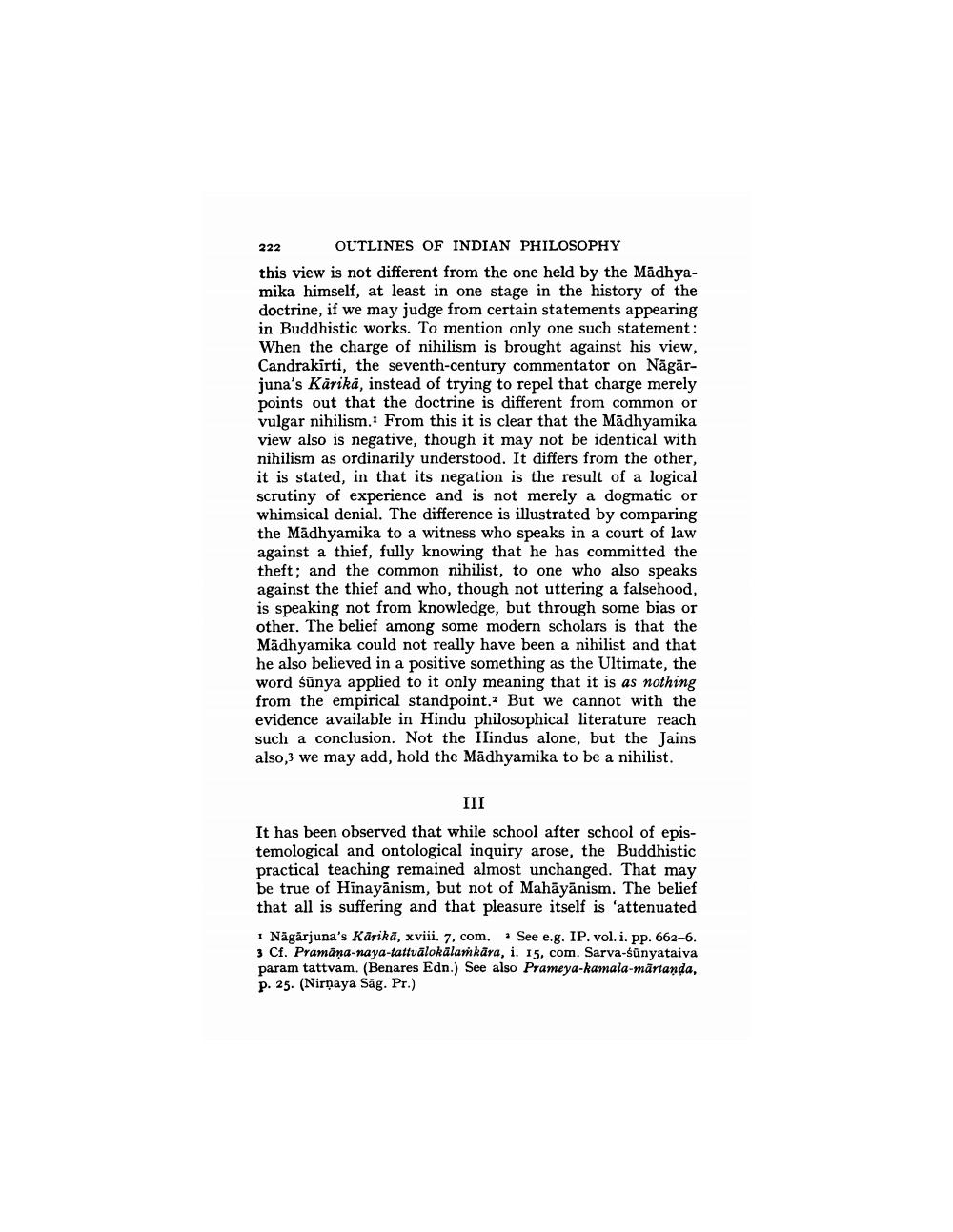________________
222
OUTLINES OF INDIAN PHILOSOPHY
this view is not different from the one held by the Madhyamika himself, at least in one stage in the history of the doctrine, if we may judge from certain statements appearing in Buddhistic works. To mention only one such statement: When the charge of nihilism is brought against his view, Candrakirti, the seventh-century commentator on Nāgārjuna's Kārikā, instead of trying to repel that charge merely points out that the doctrine is different from common or vulgar nihilism. From this it is clear that the Madhyamika view also is negative, though it may not be identical with nihilism as ordinarily understood. It differs from the other, it is stated, in that its negation is the result of a logical scrutiny of experience and is not merely a dogmatic or whimsical denial. The difference is illustrated by comparing the Madhyamika to a witness who speaks in a court of law against a thief, fully knowing that he has committed the theft; and the common nihilist, to one who also speaks against the thief and who, though not uttering a falsehood, is speaking not from knowledge, but through some bias or other. The belief among some modern scholars is that the Madhyamika could not really have been a nihilist and that he also believed in a positive something as the Ultimate, the word sunya applied to it only meaning that it is as nothing from the empirical standpoint. But we cannot with the evidence available in Hindu philosophical literature reach such a conclusion. Not the Hindus alone, but the Jains also,3 we may add, hold the Madhyamika to be a nihilist.
III
It has been observed that while school after school of epistemological and ontological inquiry arose, the Buddhistic practical teaching remained almost unchanged. That may be true of Hinayānism, but not of Mahāyānism. The belief that all is suffering and that pleasure itself is 'attenuated
1 Nāgārjuna's Kārikā, xviii. 7, com. See e.g. IP. vol. i. pp. 662-6. 3 Cf. Pramana-naya-tattuālokālaṁkāra, i. 15, com. Sarva-sunyataiva param tattvam. (Benares Edn.) See also Prameya-kamala-martanda, p. 25. (Nirnaya Säg. Pr.)




